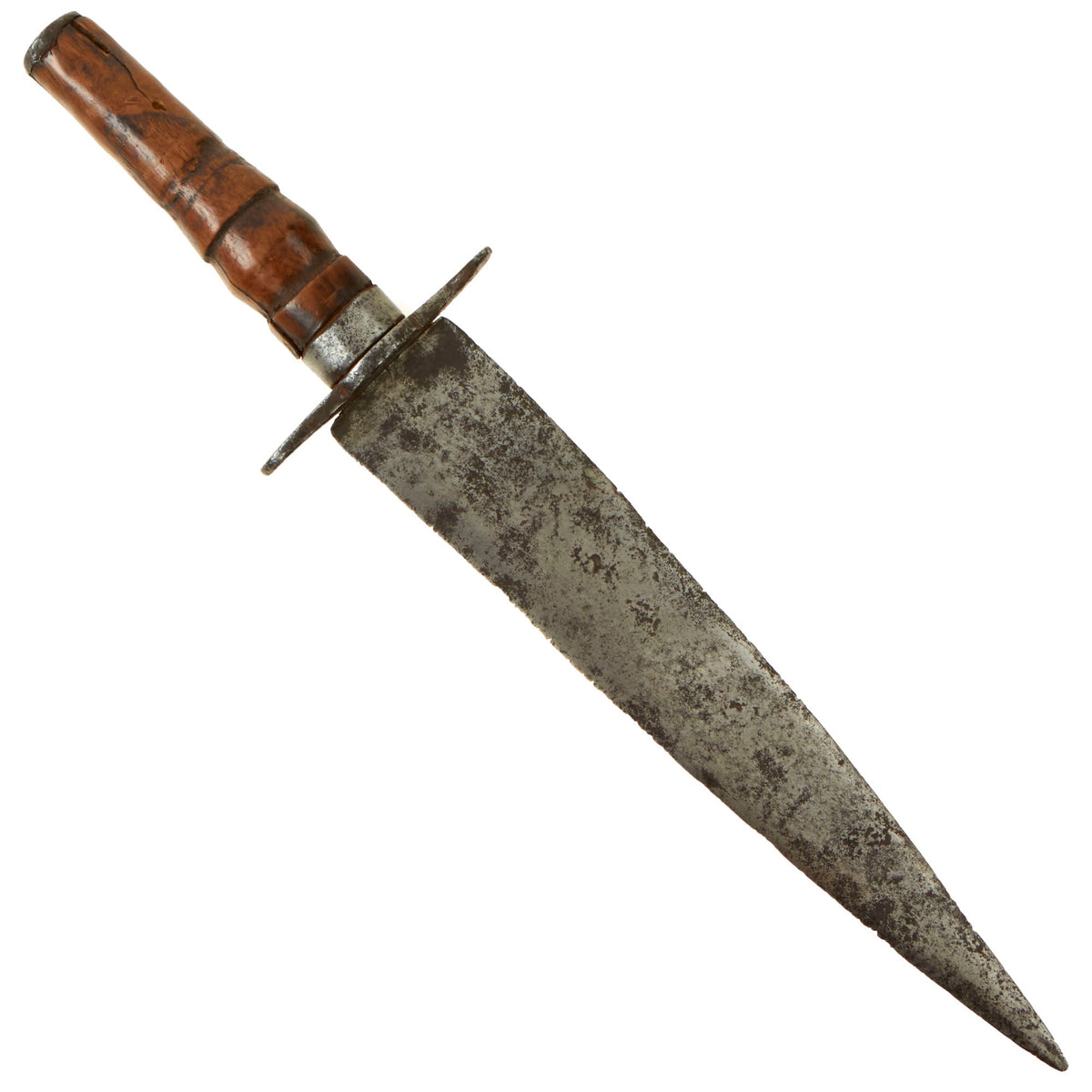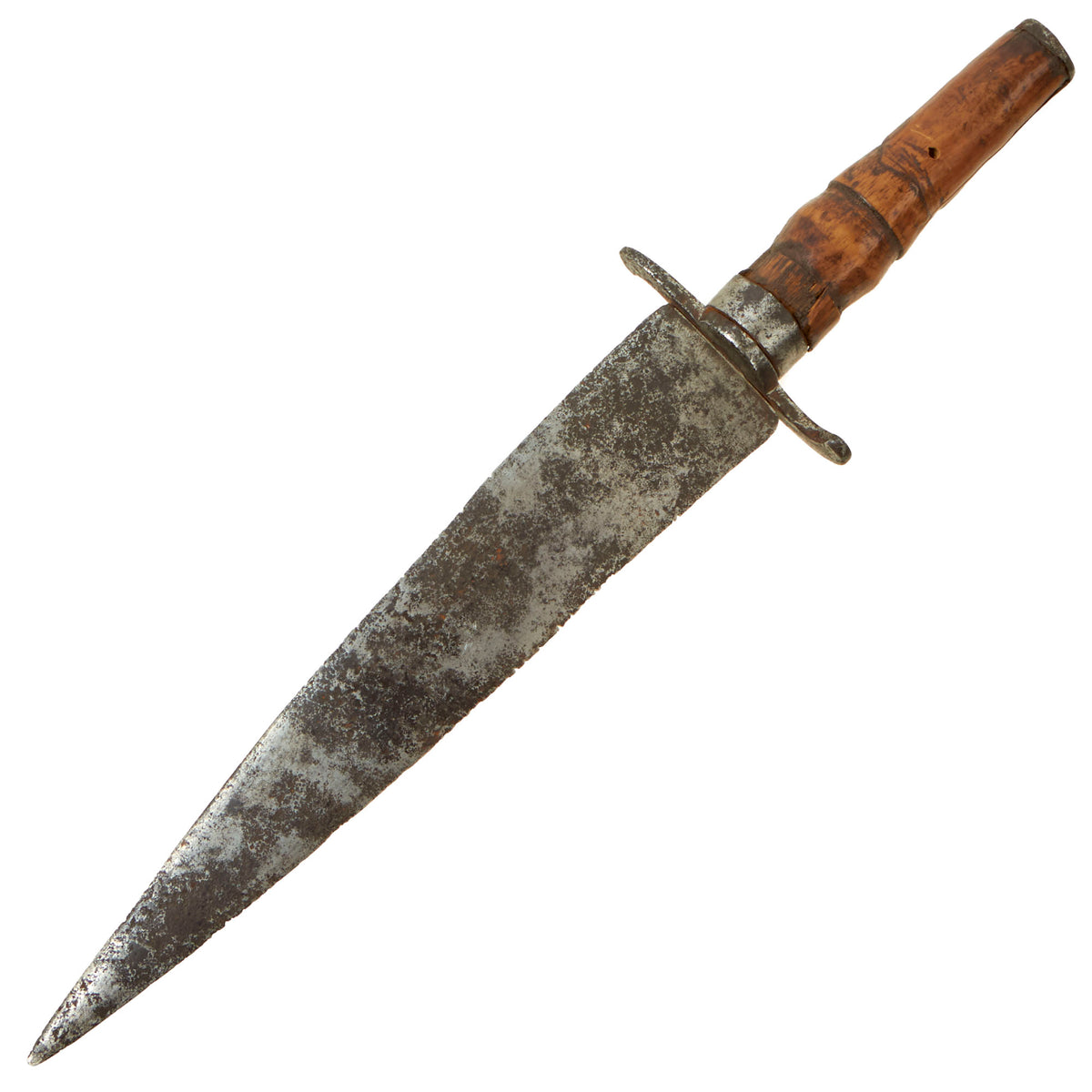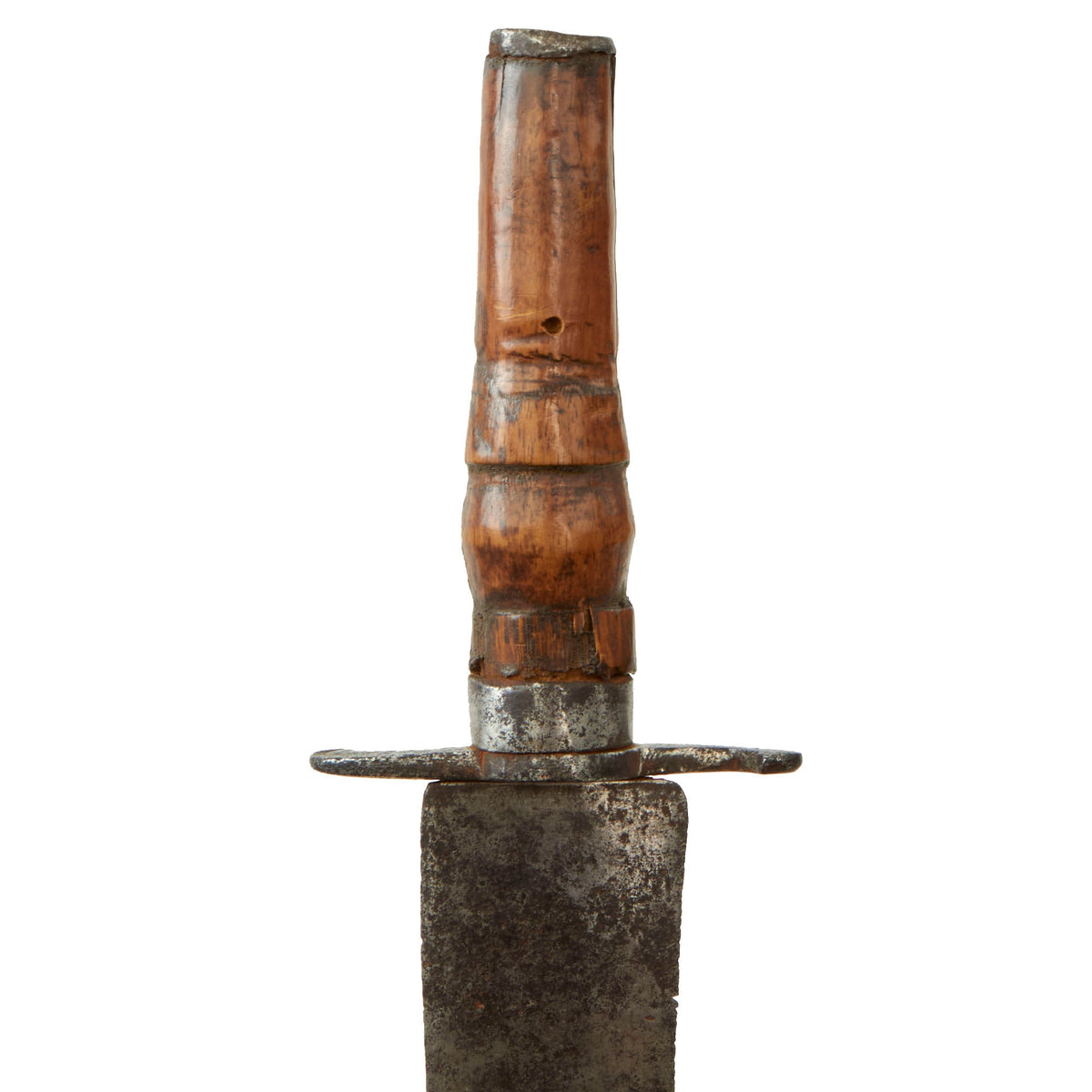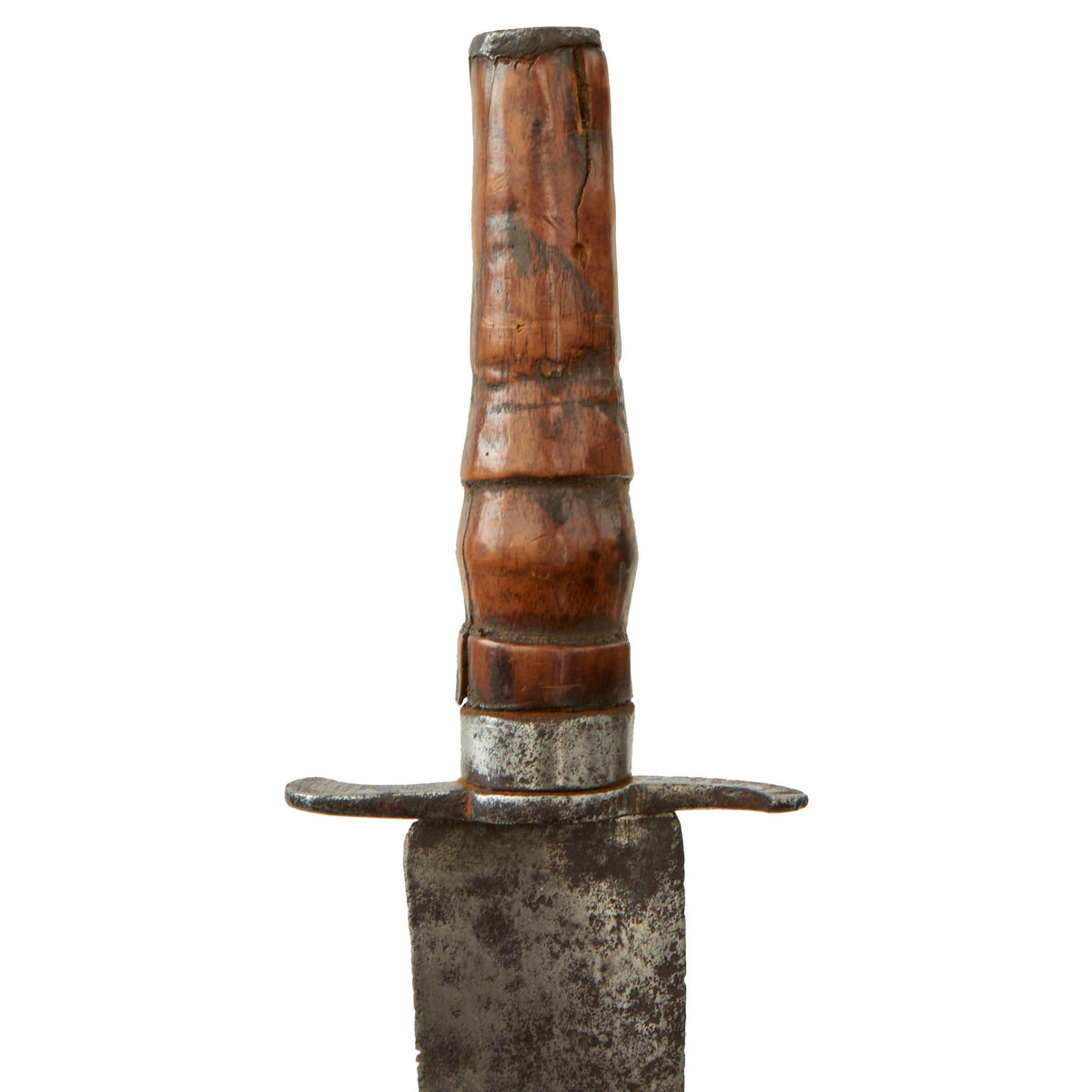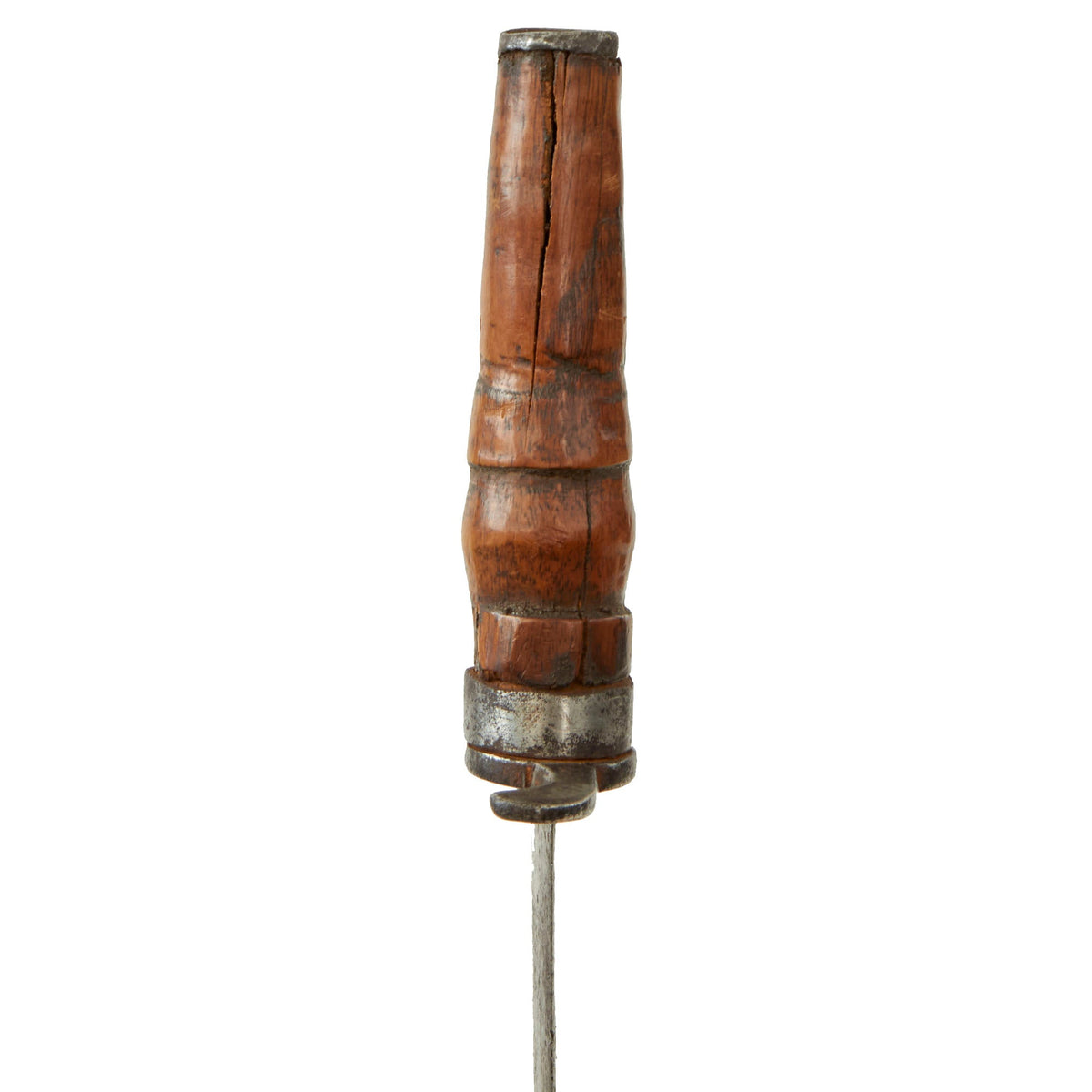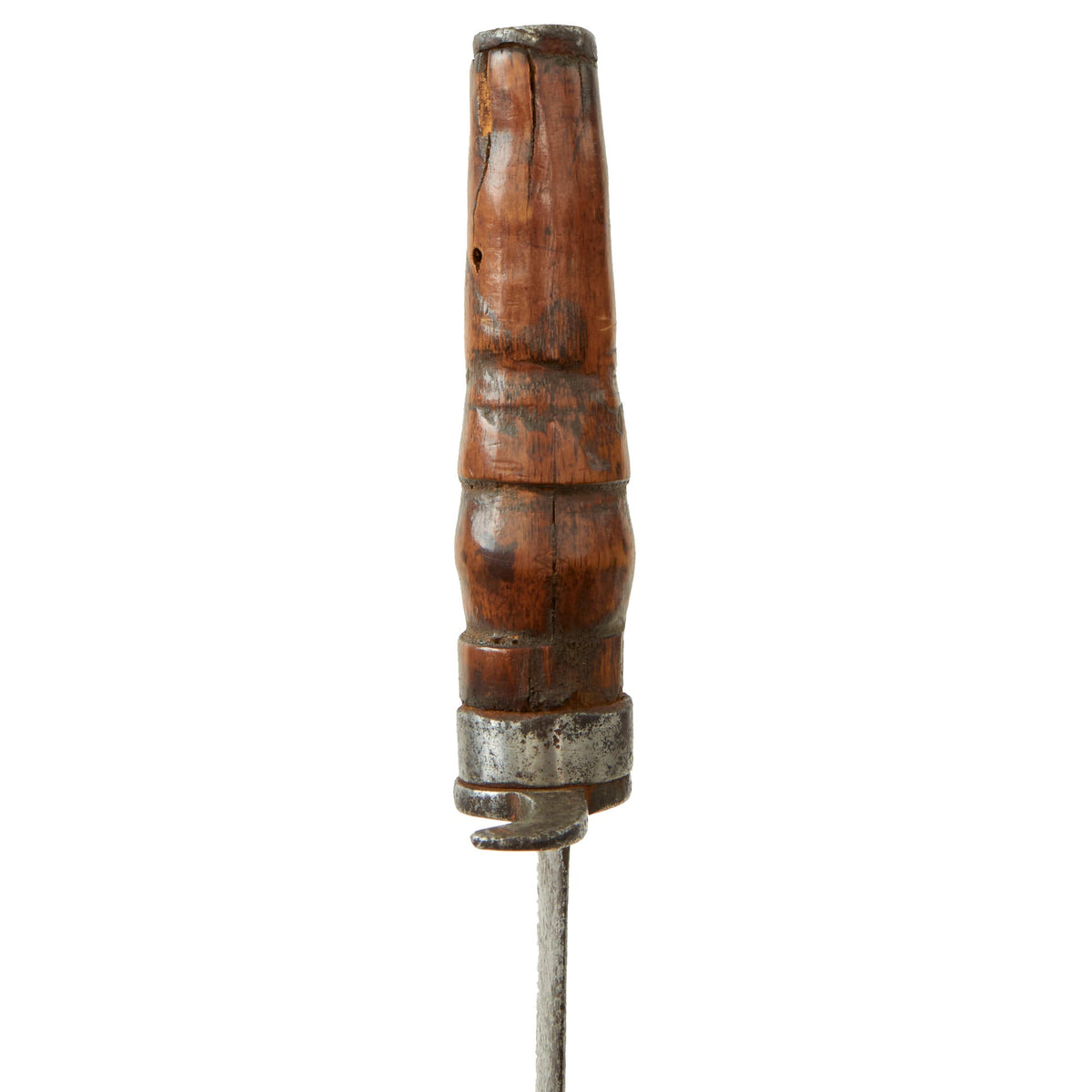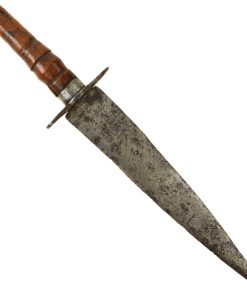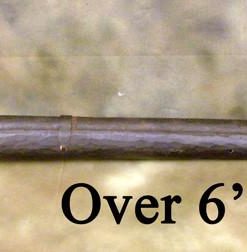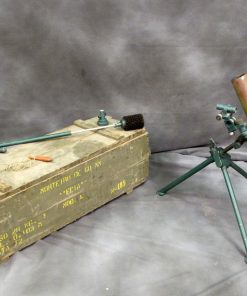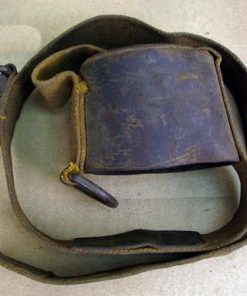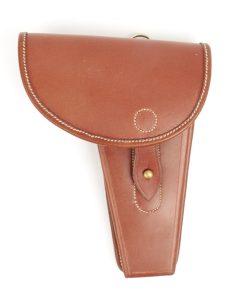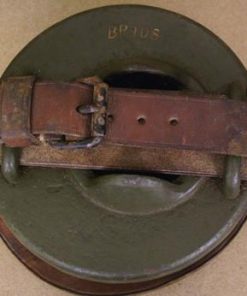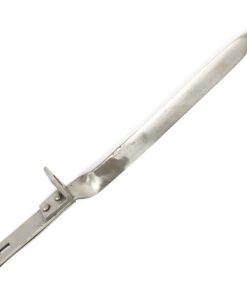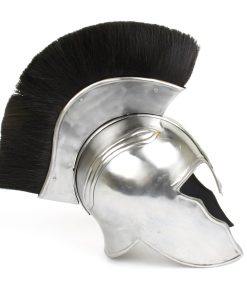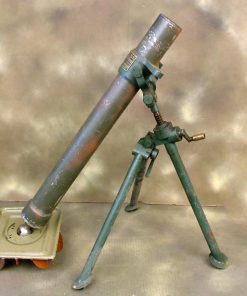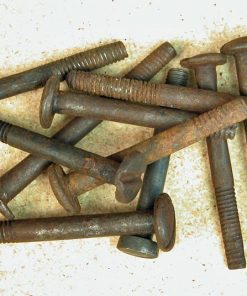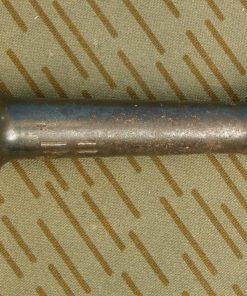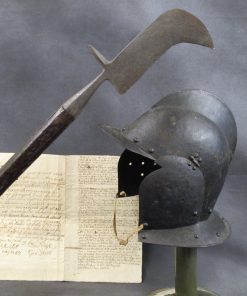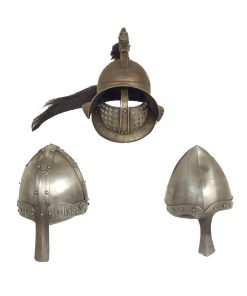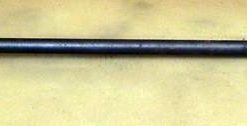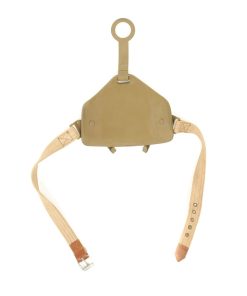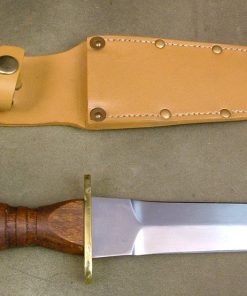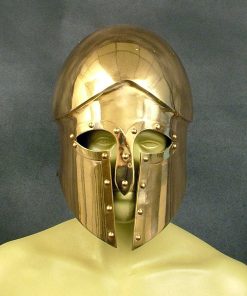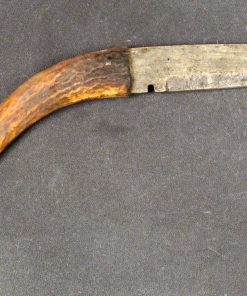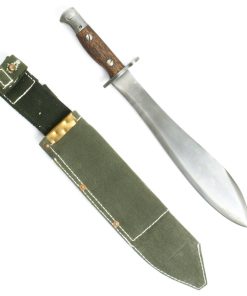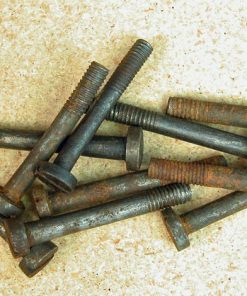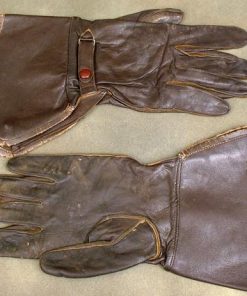Original Colonial America Late 17th Century Plug Bayonet with Wooden Handle Original Items
$ 895,00 $ 223,75
Original Item. One-of-a-Kind. This is a tremendously scarce “plug” bayonet dating to the Late 17th Century or Early 18th Century. It features a crude 7¾” blade with a 2½” crossguard, and an overall length of 11 ½”. From the construction, we believe this plug bayonet to have been made in Colonial America.
The blade of the bayonet is heavily pitted, and there is heavy chipping along the edges as is expected given the age. The wooden hilt is cracking near the bottom but is still solid, and the blade is still tight on the hilt. The quillions are in great shape and aren’t bent or misshapen.
The first recorded instance of a bayonet proper is found in the Chinese military treatise, Binglu published in 1606. It was in the form of the Son-and-mother gun, a breech-loading musket that was issued with a roughly 57.6 cm (22.7 in) long plug bayonet, giving it an overall length of 1.92 m (6 ft 4 in) with the bayonet attached. It was labeled as a “gun-blade” with it being described as a “short sword that can be inserted into the barrel and secured by twisting it slightly” that it is to be used “when the battle have depleted both gunpowder and bullets as well as fighting against bandits, when forces are closing into melee or encountering an ambush” and if one “cannot load the gun within the time it takes to cover two bu (3.2 meters) of ground they are to attach the bayonet and hold it like a spear”.
Early bayonets were of the “plug” type, where the bayonet was fitted directly into the barrel of the musket. This allowed light infantry to be converted to heavy infantry and hold off cavalry charges. The bayonet had a round handle that slid directly into the musket barrel. This naturally prevented the gun from being fired. The first known mention of the use of bayonets in European warfare was in the memoirs of Jacques de Chastenet, Vicomte de Puységur. He described the French using crude 1-foot (0.30 m) plug bayonets during the Thirty Years’ War (1618–1648). However, it was not until 1671 that General Jean Martinet standardized and issued plug bayonets to the French regiment of fusiliers then raised. They were issued to part of an English dragoon regiment raised in 1672, and to the Royal Fusiliers when raised in 1685.
This is one of the earliest bayonets we have ever offered, and it definitely requires further research. A great piece ready for further research and display!
Fast Shipping with Professional Packaging
Thanks to our longstanding association with UPS FedEx DHL, and other major international carriers, we are able to provide a range of shipping options. Our warehouse staff is expertly trained and will wrap your products according to our exact and precise specifications. Prior to shipping, your goods will be thoroughly examined and securely secured. We ship to thousands clients each day across multiple countries. This shows how we're dedicated to be the largest retailer on the internet. Warehouses and distribution centres can be located throughout Europe as well as the USA.
Note: Orders with more than one item will be assigned a processing date depending on the item.
Before shipping before shipping, we'll conduct a thorough inspection of the items you have ordered. Today, the majority of orders will be delivered within 48 hours. The delivery time will be between 3-7 days.
Returns
The stock is dynamic and we cannot completely manage it because multiple stakeholders are involved, including our factory and warehouse. So the actual stock may alter at any time. It's possible that you may not receive your order once the order has been made.
Our policy is valid for a period of 30 days. If you don't receive the product within 30 days, we are not able to issue a refund or an exchange.
You can only return an item if it is unused and in the same state as the day you received it. You must have the item in its original packaging.
Related products
Uncategorized
Uncategorized
Uncategorized
Uncategorized
Uncategorized
Uncategorized
Uncategorized
Uncategorized
Armored Burgonet Helmet & Polearm from Scottish Castle Leith Hall Circa 1700 Original Items
Uncategorized
Uncategorized
Uncategorized
Uncategorized
Uncategorized
Uncategorized
Uncategorized
Uncategorized
